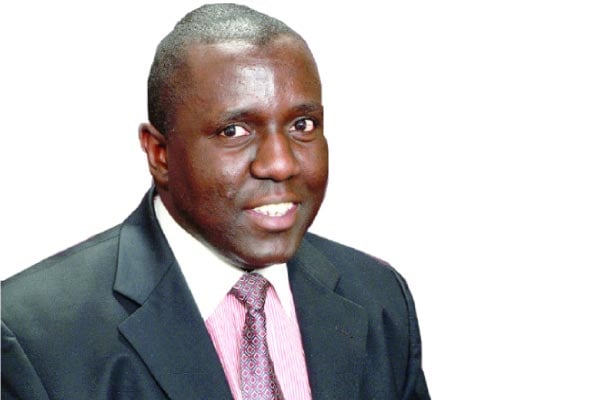Prime
Where is the minister of Foreign Affairs?

Author: Karoli Ssemogerere. PHOTO/FILE
What you need to know:
- The Canadian Parliament recently elected their first black Speaker, after the old Speaker resigned for inviting an Ukrainian Canadian to a session hosting the Ukrainian president who happened to have a Nazi past.
In many governments, with a few exceptions, the minister of Foreign Affairs is the heir apparent if they play their cards well. Hilary Clinton needed time off, after serving as Secretary of State before running against Donald Trump.
In the United Kingdom, John Major served as both Chancellor of the Exchequer and Foreign Secretary’ so did Boris Johnson and Liz Truss. In some countries, the Finance minister may carry similar heft.
Uhuru Kenyatta rose from the Treasury to become President. Milton Obote in his second term, decided not to appoint a Finance minister at all. The ministry was run by an ambassador like figure, Prof Kamuntu and a deputy minister, Henry Makmot. Milton Obote similarly was minister of Foreign Affairs.
There are some signals however that the entire understanding of foreign affairs is changing. We don’t have to look very far. In a recent cabinet reshuffle, President William Ruto folded the Ministry of Foreign Affairs into the Office of the Prime Cabinet Secretary.
Yet this decision was not a signal that Foreign Affairs had lost clout, In fact it is enjoying renewed attention this time around.
Ruto has had a number of high-profile visits, including US First Lady Jill Biden, and now King Charles, the British King is in town on a state visit, months after his coronation. People who read the palace tea think, Mudavadi, the gentleman of Kenyan politics is in line to one-day be President, 30 years after serving as Moi’s youngest Vice President.
Our own Ministry of Foreign Affairs is interesting, because President Museveni actually conducts Uganda’s foreign policy. The furniture at Foreign Affairs situated close to Parliament has not hosted a high-ranking dignitary at all or even hosted bilateral talks. Yet the size of the “chancery” has grown from 29 in 2005 to 42 today.
Uganda has fully fledged missions in Luanda, Angola, Algiers, Algeria, even though passport holders from these countries are just a small fraction of visitors to Uganda.
This entire year, the biggest news from the Foreign Office was how two competing delegations from Uganda ended up in New York for the UN General Assembly summit. The president perhaps older now, has little time for these.
On return, Parliament tried to summon everyone except the Foreign minister and his deputies to explain the diplomatic fiasco, even though the ministry has three ministers.
Economic diplomacy and realpolitik seemed to have ebbed for now. China the biggest practitioner has graduated to a second global power and is showing more of its military might abroad. The days of cheap Chinese loans are over.
Back in Beijing, Xi Jinping in the last few months has fired both his foreign and defence ministers. Sometimes the conduct of foreign relations has amateurs shedding tears.
The Canadian Parliament recently elected their first black Speaker, after the old Speaker resigned for inviting an Ukrainian Canadian to a session hosting the Ukrainian president who happened to have a Nazi past.
In Israel, where a bloody putsch is ongoing between Israel and Hamas with a frightening human death toll, the face of the war is not the Foreign minister, but the Prime Minister, Benjamin Netanyahu holding the diplomatic fort.
Uganda is hosting two big conferences early next year, the Non-Aligned Movement and South-South cooperation, but even in these, the role of the Foreign Ministry is very small. The Prime Minister and the Head of the Civil Service are in charge. And so is the minister of Finance whose resources are building the conference centre.
Sixteen years after Chogm, there is very little of a nationwide, face of the Foreign Ministry preparing the country for a big event. At the operational level, there is a lot of undiplomatic work, road crews, battling the potholes that have turned parts of the city into a mini-Beirut. Sledgehammers, concrete mixers and blackstones to boot.
Mr Karoli Ssemogerere is an Attorney-At-Law and an Advocate. [email protected]


